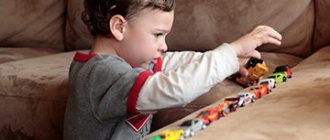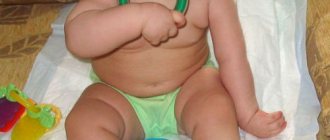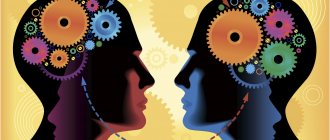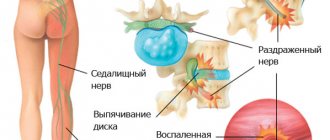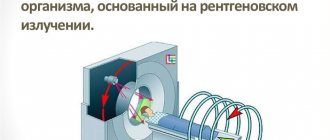Is your child moving from grade two to grade three? Is he unable to learn even a short poem? Does he write with errors, and the entire notebook is filled with red corrections?
If you spend the whole evening doing homework, and the next day your child again gets a D or a C, this does not mean that he is incapable of learning or is pathologically lazy. Most often, the reason lies in the insufficient formation of higher mental functions and immaturity of brain structures. A specialist called a neuropsychologist will help the child in this situation.
What does neuropsychology do?
This section of medicine and psychology studies the relationship between the functioning of the brain and behavior, the human psyche. In other words, a neuropsychologist is a doctor who can objectively assess the state of higher mental functions and help restore them (if they are lost due to severe injury or illness) or develop them when necessary.
The characteristics of brain development are individual for each person. Of great importance is how pregnancy and childbirth, early childhood proceeded, whether severe infections or injuries were suffered, whether developmental activities were appropriate for the child’s age, etc. A neuropsychologist identifies the strengths and weaknesses of the brain in order to bring them to the same level and do the work both hemispheres are more harmonious and productive.
Since a pediatrician evaluates the development and behavior of a child from the point of view of the laws of brain development, higher mental functions and personality and uses specific diagnostic methods, he can identify serious diseases at an early stage and develop the most effective correction program or formative education, taking into account individual characteristics baby.
Diagnostics
For diagnostics in neuropsychology, the system developed by A.R. is usually used. Luria. During the diagnostic process, the neuropsychologist:
- describes the medical history and results of previous examinations (clinical case);
- describes the patient’s mental state taking into account the characteristics of his consciousness (emotional status, ability to navigate in time and space, criticality);
- examines attention (passive and voluntary) and memory;
- explores visual perception using real objects, tactile and auditory perception, motor activity;
- studies speech skills;
- analyzes the features of writing;
- explores intellectual processes, counting, reading.
Innovative developments (Wasserman method, etc.) can also be used in diagnostics.
Among the instrumental methods, EEG, CT, MRI, PET, etc. can be used.
In what cases should you contact a pediatric neuropsychologist?
Most often, functional immaturity of brain structures in a neurologically healthy child manifests itself in the following situations:
- an age crisis sets in;
- education begins in kindergarten, school;
- mental or emotional stress increases sharply.
The situation is aggravated by stress or a difficult life situation, for example, parental divorce, loss of a close relative, moving to another city, etc. Functional immaturity of brain structures often occurs due to the fact that children at an early age are overloaded with “developmental activities.” It happens that a three-year-old toddler goes to Chinese, and to music, and to the theater. The result is the same thing that happens when a high-rise building is built on a weak foundation: it collapses.
Parents are surprised why a child who is formally fully ready for learning, that is, able to read, count, and write, begins to behave badly, receive unsatisfactory grades, and experiences difficulties in being in a group. Most parents begin to turn to tutors for help or punish their child, when in fact the real reason lies not in the child’s laziness, but in the lack of a solid “foundation” for successful learning.
It is necessary to show the child to a pediatric neuropsychologist in the following cases:
- the baby cannot control himself, “does not hear” the comments of adults;
- his behavior is explosive, impulsive;
- he is characterized by hyperactivity or excessive slowness;
- poorly coordinates his actions, does not orient himself in space, and over the age of 6 years does not know where right and left are;
- The child has illegible handwriting, he confuses the spelling of similar letters, mixes unvoiced and voiced sounds, writes “mirror”;
- cannot identify the main features of an object: color, size, weight, shape, purpose);
- he doesn’t remember the material well, and therefore studying is difficult for him;
- he is not able to independently complete a task in class or at home;
- the child gets tired quickly, is easily distracted, has difficulty concentrating on a task;
- he “does not see” the line, does not understand the simplest formulations of tasks, does not know how to perform actions according to a given algorithm;
- has difficulty mastering reading, writing, and counting.
In addition, the help of a neuropsychologist is necessary if the child has been studying with a speech therapist for a long time with practically zero results, or if he has a developmental delay - mental, speech, mental, psycho-speech.
Important qualities
Regarding human, and not professional qualities, a representative of this profession needs to be able to win over the patient and establish a trusting relationship with him. A prerequisite is the presence of empathy, but at the same time the ability to abstract, without letting the patient’s problems pass through oneself. It is also necessary to have a stable nervous system, since in practice we often encounter difficult cases of diseases.
A neuropsychologist must be able to work with children, since they make up the majority of the total number of patients. Patience and endurance are required.
In addition, a representative of this profession will require constant professional development and self-education. The majority of research in the field of neuropsychology is published in English, so it is important to have knowledge of this language. In addition, at various international seminars in this language it will be possible to exchange experiences with specialists from other countries.
Salary as of 11/04/2020
Russia 16000—45000 ₽
Moscow 35000—110000 ₽
The salary of a neuropsychologist depends on the country and region in which he operates. Directly in Moscow, an employee who has just started practicing receives about 20,000 rubles, and an experienced specialist earns 50,000 rubles. Payment for the work of a professional specialist in the field of neuropsychology can be more than 90,000 rubles. Those in private practice can earn much more, provided that they truly have fundamental knowledge in the field of neuropsychology.
Temporal dysfunction syndrome
With this syndrome, auditory-verbal memory is damaged. The order of words is violated, words are replaced. The baby gets confused with similar sounds. A little man may confuse vowels when writing.
Insufficiency of the occipital regions. In this case, specularity is clearly manifested; the baby does not distinguish between spatial factors. The function of orientation in space is impaired. Confuses the concepts of left and right. When writing words, does not maintain the line of the letter.
Insufficiency of the frontal regions - all programs are simplified. The student does not complete words or prepositions. Can't remember the simplest rules. A very meager vocabulary, speech is poor and unexpressive. The construction of phrases is primitive: “I ate”, “I am playing”. The child expresses his thoughts in monosyllabic sentences.
Diagnostic methods
A pediatric neuropsychologist is a specialist who is able to independently diagnose a child in need of neurocorrectional help. There are several basic methods of neuropsychological examination used for children aged 3 to 12 years.
Reciprocal hand coordination test
This type of testing of a child’s neuropsychological state is used to determine the level of interaction between the two hemispheres of the brain.
This diagnostic method is carried out as follows:
- The child sits down at the table.
- The patient then places his upper limbs on the table surface with his palms facing down.
- At the neuropsychologist’s command, the child clenches one hand into a fist and straightens the other.
- These movements of the upper limbs occur alternately.
The duration of this test is at least 20 s. If the child maintains normal interaction of the cerebral hemispheres, then in this case there will be synchronous work of two palms of the upper extremities at once.
Schulte table
The Schulte table is an effective method of neuropsychological examination, which was developed by the German psychiatrist Walter Schulte. This testing is aimed at determining the child’s intellectual abilities, as well as attention properties.
This diagnostic method is carried out as follows:
- A rectangular table divided into 25 squares is attached to the wall.
- Each cell contains numbers from 1 to 25, which are randomly scattered throughout the table.
- At the specialist’s command, the child must one by one find all the numbers located in the cell.
Based on the results of the examination, the neuropsychologist assesses the patient’s work speed and counts the number of errors made. After this, appropriate conclusions are drawn regarding the performance of the child’s brain centers.
Bourdon test
This diagnostic method is also known as a correction test, and its purpose is to determine the patient’s rate of fatigue.
This neuropsychological examination is carried out in compliance with the following algorithm of actions:
- The child sits down at the desk.
- Then the neuropsychologist gives him a form with printed text, the content of which contains extra characters.
- At the “start” command, the child must quickly re-read this information while simultaneously crossing out pre-specified letters or numbers.
The duration of the testing process ranges from 3 to 10 minutes. depending on what symptoms are present in a particular child. Based on the diagnostic results, the neuropsychologist determines the patient’s reading speed, accuracy, and level of attention.
System and principles of operation
Neuropsychological correction is carried out using special exercises that develop the child’s body, as well as individual centers of the brain. The main task of a specialist is to teach children who require his help to feel their body, move as smoothly and clearly as possible, and maintain a high concentration of attention.
The principle of work of a neuropsychologist is that in the process of conducting correctional classes it is possible to achieve the following results:
- develop those areas of the cerebral cortex, the full formation of which did not occur due to the negative impact of certain factors;
- strengthen the physiological connection between the structural elements of the two hemispheres of the brain (achieving this effect allows you to improve mental function, increase the child’s ability to learn and assimilate information);
- accelerate mental processes occurring in the central nervous system, as well as activate the energy supply of brain cells.
Due to systemic neurocorrection, the child acquires the skills of independent control of his movements, clumsiness and awkwardness disappear. There is a harmonious development of all zones of the central nervous system, which are necessary for the formation of a self-sufficient personality.
The work of those areas of the brain that are responsible for planning, self-organization, and also control the functions of the musculoskeletal system and psycho-emotional reactions is normalized.


